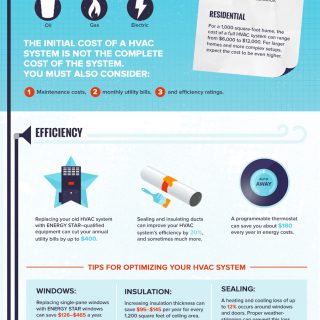The Future Of Home Home Heating - Just How Heatpump Innovation Is Advancing
The Future Of Home Home Heating - Just How Heatpump Innovation Is Advancing
Blog Article
Developed By-Dawson MacGregor
Heat pumps will be a crucial technology for decarbonising heating. In a situation consistent with governments' introduced energy and environment dedications, their global capacity doubles by 2030, while their share in home heating rises to one-quarter.
They work best in well-insulated homes and rely on electrical energy, which can be supplied from a sustainable power grid. Technical innovations are making them more efficient, smarter and less costly.
mitsubishi heat pump specialists christchurch utilize a compressor, refrigerant, coils and fans to relocate the air and heat in homes and home appliances. They can be powered by solar energy or electrical power from the grid. They have actually been obtaining popularity due to their low cost, quiet procedure and the capability to produce electrical energy throughout peak power demand.
Some firms, like IdaTech and BG MicroGen, are working with gas cells for home heating. These microgenerators can change a gas boiler and generate several of a residence's electrical demands with a link to the electrical power grid for the remainder.
However there are factors to be unconvinced of using hydrogen for home heating, Rosenow states. It would be expensive and inefficient compared to other innovations, and it would certainly add to carbon exhausts.
Smart and Connected Technologies
Smart home technology permits property owners to attach and manage their tools remotely with making use of smart device apps. For instance, clever thermostats can discover your heating choices and instantly adapt to optimize energy consumption. Smart lights systems can be controlled with voice commands and automatically turn off lights when you leave the space, reducing power waste. And wise plugs can monitor and manage your electrical usage, allowing you to determine and limit energy-hungry appliances.
The tech-savvy home illustrated in Carina's meeting is a good image of just how passengers reconfigure room home heating methods in the light of new clever home innovations. They rely upon the tools' computerized attributes to accomplish everyday changes and regard them as a hassle-free methods of performing their heating practices. Because of this, they see no reason to adapt their techniques additionally in order to enable adaptability in their home energy demand, and treatments aiming at doing so may deal with resistance from these homes.
Electrical power
Since heating homes represent 13% people discharges, a switch to cleaner choices can make a big difference. However the innovation deals with challenges: It's pricey and needs extensive home remodellings. And it's not constantly suitable with renewable energy resources, such as solar and wind.
Until lately, electric heatpump were also expensive to take on gas versions in a lot of markets. But new innovations in style and products are making them much more affordable. And ac maintenance canterbury is enabling them to function well also in subzero temperature levels.
The next step in decarbonising heating may be using warmth networks, which attract heat from a central source, such as a nearby river or sea inlet, and distribute it to a network of homes or structures. That would lower carbon discharges and allow families to take advantage of renewable resource, such as eco-friendly power from a grid provided by renewables. This choice would be less costly than switching to hydrogen, a fossil fuel that calls for new facilities and would only decrease CO2 emissions by 5 percent if coupled with boosted home insulation.
Renewable Energy
As electricity rates go down, we're beginning to see the same fad in home heating that has driven electric vehicles into the mainstream-- but at an even faster speed. https://www.nytimes.com/wirecutter/reviews/best-air-conditioner/ for electrifying homes has been pressed additionally by brand-new research study.
Renewables make up a significant share of modern heat intake, but have actually been provided restricted plan interest globally compared to other end-use markets-- and also less interest than power has. Partly, this shows a mix of customer inertia, divided rewards and, in lots of nations, aids for fossil fuels.
New innovations can make the change easier. For example, heatpump can be made much more energy efficient by changing old R-22 cooling agents with brand-new ones that don't have the high GWPs of their predecessors. Some professionals likewise picture area systems that draw warmth from a nearby river or sea inlet, like a Norwegian arm. The warm water can then be made use of for heating and cooling in a neighborhood.